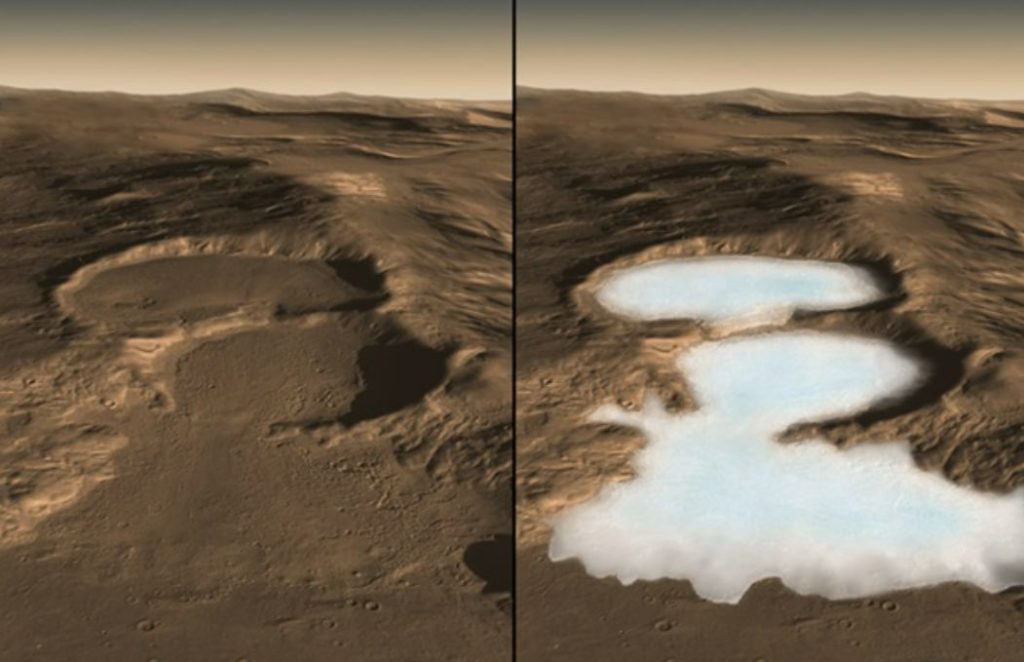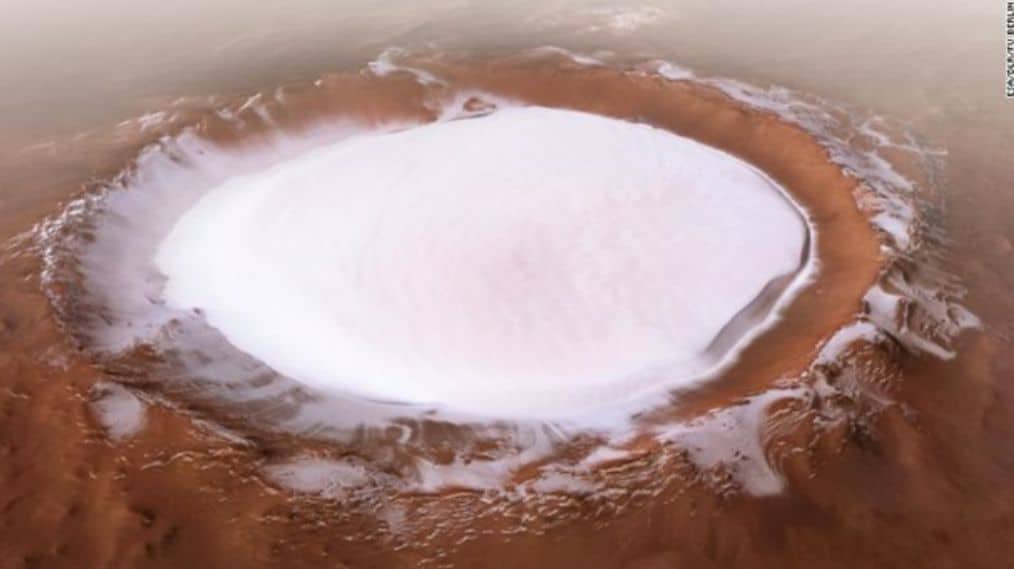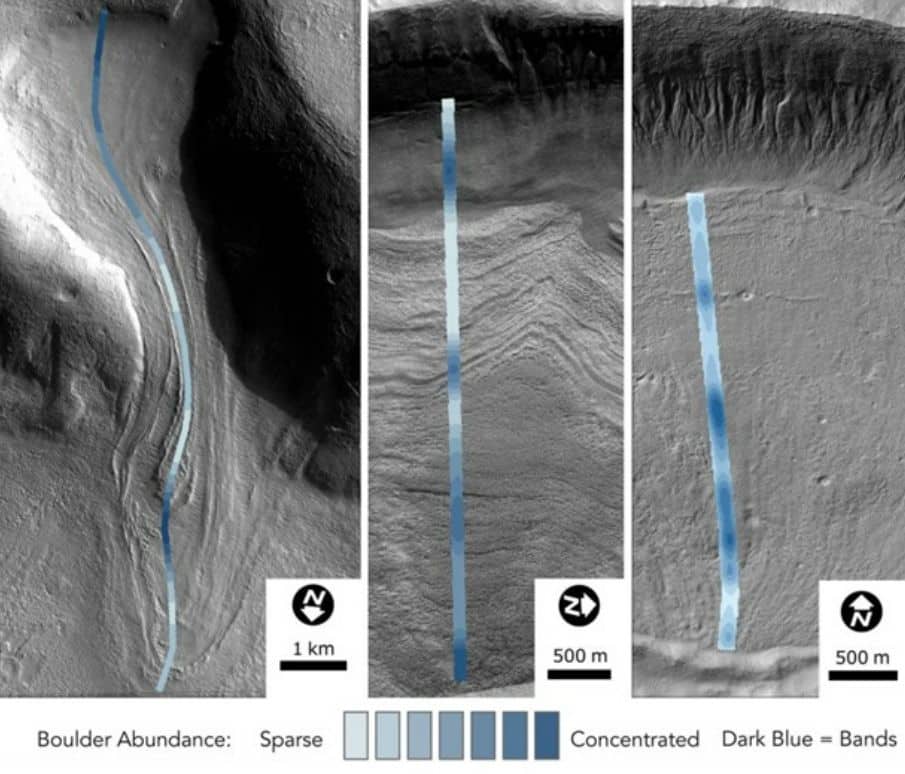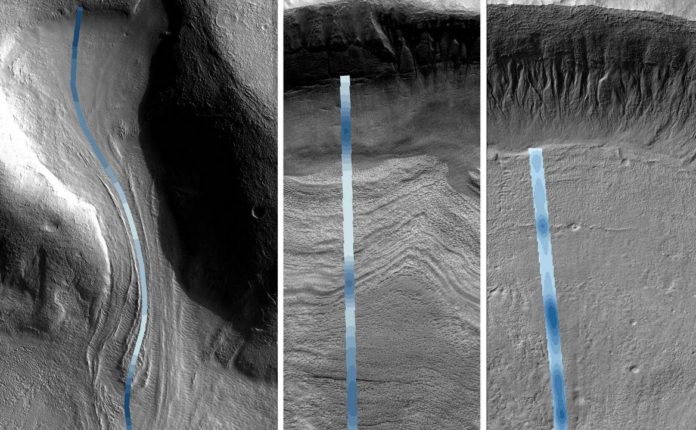Scientists estimate that Mars has experienced six to twenty ice ages in the last 300-800 million years.
A team of researchers from Colgate University in New York state has found traces of dozens of ice ages on Mars.
The researchers analyzed photographs of 45 Mars glaciers that were taken by NASA’s Mars Reconnaissance Orbiter (MRO).
Scientists have studied the distribution of about 60 thousand rocks and found that their accumulations were formed as a result of changing cycles of advancing and retreating ice.
According to the researchers, the grouping of large rocks suggests that Mars has experienced six to twenty ice ages in the last 300-800 million years.
“There are really good models for Mars’ orbital parameters for the last 20 million years,” said Joe Levy, a planetary geologist and assistant professor of geology, while revealing analysis of the mysterious glaciers and rocks of Mars.
He also added that “there’s a lot of work to be done figuring out the details of Martian climate history including when and where it was warm enough and wet enough for there to be brines and liquid water.”
- Neuroscience Breakthrough: Study Pinpoints Brain Activity That Helps Prevent Us From Getting Lost
- Brief Anger Hampers Blood Vessel Function Leading to Increased Risk of Heart Disease and Stroke – New Study
- New Blood Test Pinpoints Future Stroke Risk – Study Identifies Inflammatory Molecules as Key Biomarker
- Enceladus: A Potential Haven for Extraterrestrial Life in its Hidden Ocean Depths
- New Experiment: Dark Matter Is Not As ‘DARK’ As All We Think




Earlier it was reported that NASA’s Mars Reconnaissance Orbiter probe made another series of images of the surface of Mars from orbit.
Also, NASA experts decided to abandon attempts to drill soil on Mars using the “mole” instrument of the InSight apparatus.
